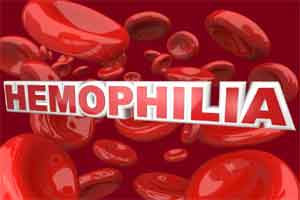- Home
- Medical news & Guidelines
- Anesthesiology
- Cardiology and CTVS
- Critical Care
- Dentistry
- Dermatology
- Diabetes and Endocrinology
- ENT
- Gastroenterology
- Medicine
- Nephrology
- Neurology
- Obstretics-Gynaecology
- Oncology
- Ophthalmology
- Orthopaedics
- Pediatrics-Neonatology
- Psychiatry
- Pulmonology
- Radiology
- Surgery
- Urology
- Laboratory Medicine
- Diet
- Nursing
- Paramedical
- Physiotherapy
- Health news
- Fact Check
- Bone Health Fact Check
- Brain Health Fact Check
- Cancer Related Fact Check
- Child Care Fact Check
- Dental and oral health fact check
- Diabetes and metabolic health fact check
- Diet and Nutrition Fact Check
- Eye and ENT Care Fact Check
- Fitness fact check
- Gut health fact check
- Heart health fact check
- Kidney health fact check
- Medical education fact check
- Men's health fact check
- Respiratory fact check
- Skin and hair care fact check
- Vaccine and Immunization fact check
- Women's health fact check
- AYUSH
- State News
- Andaman and Nicobar Islands
- Andhra Pradesh
- Arunachal Pradesh
- Assam
- Bihar
- Chandigarh
- Chattisgarh
- Dadra and Nagar Haveli
- Daman and Diu
- Delhi
- Goa
- Gujarat
- Haryana
- Himachal Pradesh
- Jammu & Kashmir
- Jharkhand
- Karnataka
- Kerala
- Ladakh
- Lakshadweep
- Madhya Pradesh
- Maharashtra
- Manipur
- Meghalaya
- Mizoram
- Nagaland
- Odisha
- Puducherry
- Punjab
- Rajasthan
- Sikkim
- Tamil Nadu
- Telangana
- Tripura
- Uttar Pradesh
- Uttrakhand
- West Bengal
- Medical Education
- Industry
Only 15 percent of haemophilia patients diagnosed in India

Only 15 percent of people in India suffering from haemophilia a genetic and life-threatening bleeding disorder have been identified while the remaining still lay undiagnosed, health experts said.
According to experts, there are about 16,000 registered patients suffering from haemophilia in the country.
However, they suspect that the number of people suffering with haemophilia in India could be seven times more.
"The burden of haemophilia lies undiagnosed to a great extent. There are about 16,000 registered patients in the country as of now, others remain undiagnosed," said Kanjaksha Ghosh, president of the Haemophilia Federation of India.
According to a study by the World Federation of Haemophilia (annual global survey), almost half of the world's haemophilia population lives in India and almost 70 percent of people with haemophilia do not have adequate knowledge or access to treatment.
Haemophilia is a genetic and life-threatening bleeding disorder. Even with a minor injury or cut, the blood of haemophilia patients does not clot normally due to the absence of clotting proteins called factors.
If care is not taken, recurrent and prolonged bleeding into joints and muscles can lead to permanent disability and bleeding from sensitive organs can even lead to death.
About management of the disease, Alok Srivastava, professor in the department of haematology at Christian Medical College, Vellore, said: "In Delhi, there are 2,000 registered patients suffering from haemophilia.
"Delhi is also witnessing cases coming from other states as they do not have basic facilities and management care in their region."
He said efforts were being taken to build more haemophilia care centres which would create effective mechanism for diagnosis, treatment and bringing timely comprehensive care for haemophiliacs within their reach.
"We are committed to provide accessible treatment and provide state-of-the-art facilities for patients," said Srivastava.
The experts were speaking at an event organised to mark World Haemophilia Day, inaugurated by BJP parliamentarian Meenakshi Lekhi.


